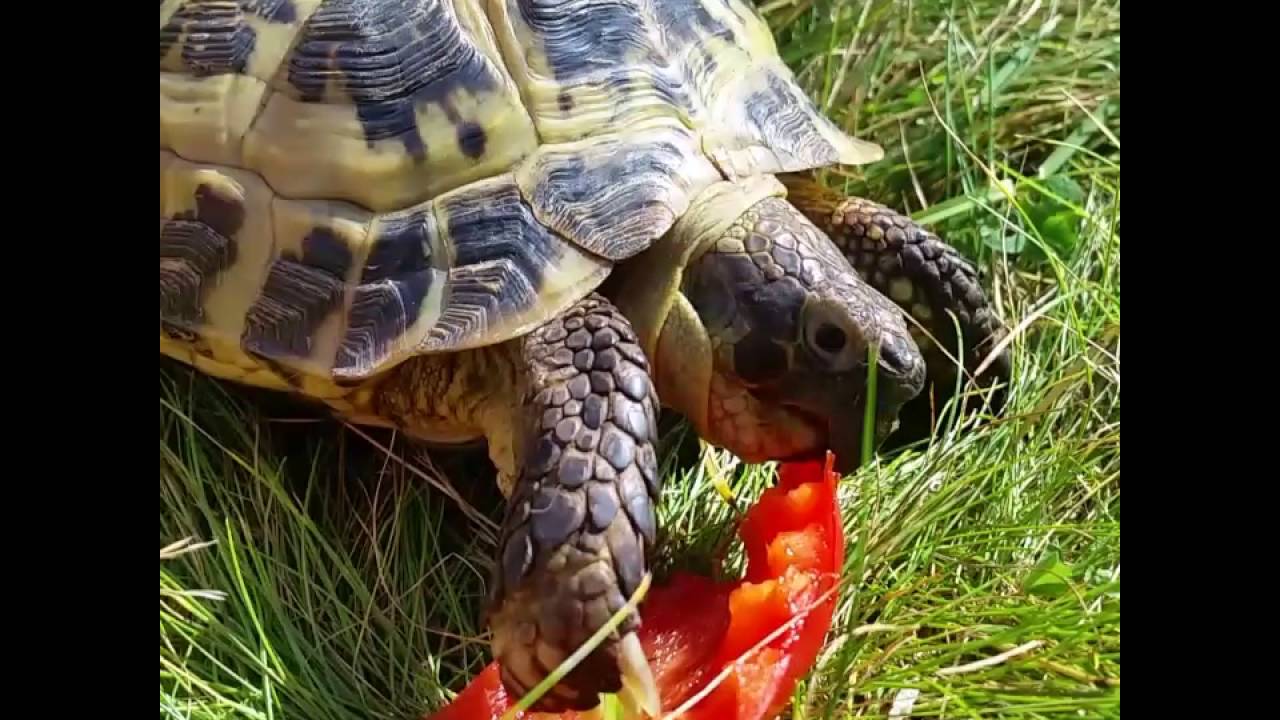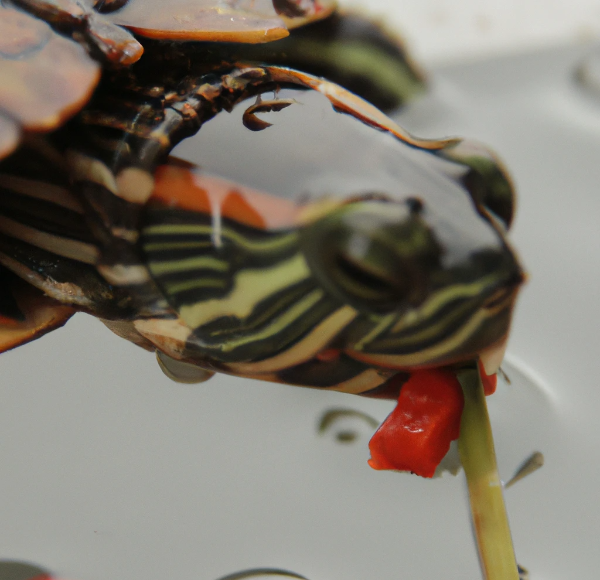Turtles are fascinating creatures known for their diverse diet. As a turtle owner or enthusiast, you may wonder if it is safe to feed them bell peppers. In this article, we will explore whether turtles can eat bell peppers and provide you with valuable insights on their dietary needs.

Can Turtles Safely Consume Bell Peppers?
Turtles are omnivorous, meaning they can eat both plant and animal matter. While their diet primarily consists of leafy greens, vegetables, and fruits, it is essential to ensure that the food they consume is safe and beneficial for their health.
Bell peppers, with their vibrant colors and crunchy texture, can be a tempting treat for turtles. The good news is that turtles can indeed eat bell peppers. These vegetables are not toxic to turtles and can be a nutritious addition to their diet.
Nutritional Benefits of Bell Peppers for Turtles
Bell peppers are rich in essential nutrients that can contribute to the overall well-being of turtles. They are an excellent source of vitamins A, C, and E, which are crucial for maintaining healthy skin, promoting proper growth, and boosting the immune system of turtles.
Additionally, bell peppers contain antioxidants that help combat free radicals in the turtle’s body, reducing the risk of cell damage and promoting longevity. The high water content in bell peppers also aids in keeping turtles hydrated.
Feeding Bell Peppers to Turtles
When feeding bell peppers to turtles, it is important to follow some guidelines to ensure their safety and well-being:
-
Choose ripe bell peppers: Select ripe bell peppers that are free from any signs of mold or rot. Avoid using peppers that have been treated with pesticides.
-
Wash thoroughly: Before feeding bell peppers to turtles, make sure to wash them thoroughly to remove any dirt or residue.
-
Remove seeds and stems: Remove the seeds and stems from the bell peppers, as they can be difficult for turtles to digest.
-
Cut into small pieces: Cut the bell peppers into small, bite-sized pieces to make it easier for turtles to consume.
-
Moderation is key: While bell peppers are safe for turtles, they should be offered as a part of a balanced diet. Ensure that bell peppers do not make up the majority of their food intake.
Frequently Asked Questions (FAQs)
-
Can turtles eat all types of bell peppers?
Yes, turtles can eat all types of bell peppers, including green, red, yellow, and orange varieties. However, it is important to ensure that the peppers are ripe and free from any pesticides. -
Can baby turtles eat bell peppers?
Yes, baby turtles can eat bell peppers, but it is crucial to cut them into smaller, more manageable pieces to prevent choking hazards. -
Are there any risks associated with feeding turtles bell peppers?
Bell peppers are generally safe for turtles to consume. However, excessive consumption may lead to digestive issues such as diarrhea. It is important to offer bell peppers in moderation as part of a varied diet. -
Can turtles eat bell pepper leaves?
While bell pepper leaves are not toxic to turtles, they are not commonly consumed. Turtles primarily feed on the bell pepper fruit rather than the leaves. -
What other vegetables can turtles eat?
Turtles can eat a variety of vegetables, including leafy greens like kale, spinach, and lettuce. Other suitable options include carrots, cucumbers, and zucchini. It is important to research and provide a balanced diet for your specific turtle species.
In conclusion, turtles can safely consume bell peppers as part of their diet. These colorful vegetables offer nutritional benefits and can be a tasty addition to their meals. Remember to follow the guidelines mentioned above and provide a balanced diet for your turtles to ensure their overall health and well-being.

